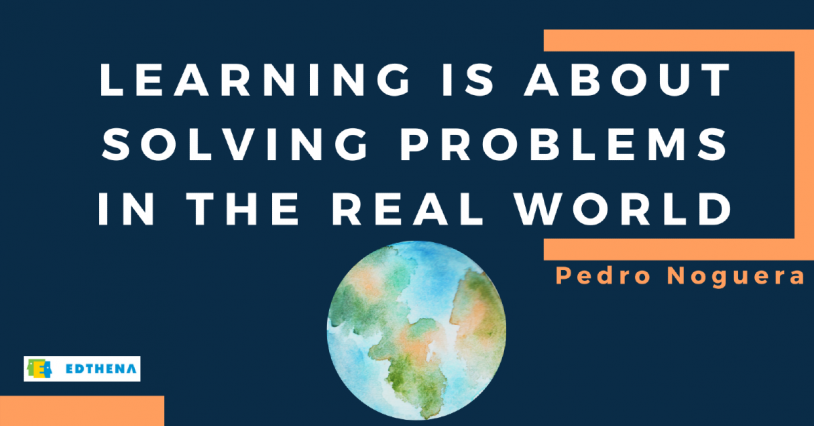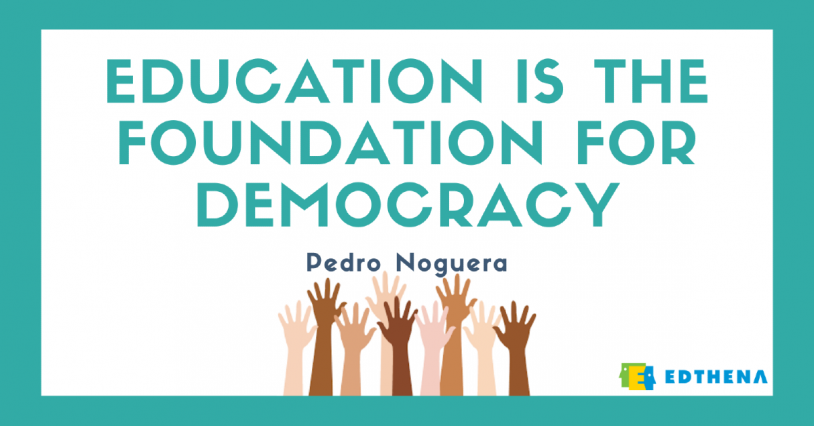Classroom Values: Pedro Noguera on the Importance of Effective Learning Communities
As summer nears and educators reflect on the past school year, remember to consider more than just the amount of content and standards covered.
Students’ final grades are an important metric, but more important is the larger question of if effective learning communities were created in classrooms.
In this PLtogether Lounge Talk, Edthena founder & CEO Adam Geller interviewed Dr. Pedro Noguera, Dean of the USC Rossier School of Education. A scholar and expert on issues of equity in education, Pedro Noguera discussed creating classroom value systems and the greater purpose of learning communities.
What are learning communities and how can teachers foster them? Watch the interview video above, and read on for highlights of the conversation.
Education serves to solve problems of the real world
Pedro Noguera reflected, “Most of the problems facing the world can be thought of as problems of learning … we just haven’t learned how to solve that problem.”
Indeed, solution-oriented learning has many examples, such as when students brainstorm alternatives to plastic use or fixes for climate change.
When kids “think about big things and then apply what they’re learning to solve problems,” Pedro said, education becomes more meaningful. It also enables new possibilities for the future.
This approach, fostered by teachers, is what creates true learning communities in classrooms: students working together to learn and applying their learning to the real world.
Show students how education can help them solve problems

Once students see why they’re studying something and how it will affect their lives, they get closer to the deeper goal of learning: not just completing homework and passing tests but enjoying learning and appreciating its purpose.
Classrooms that are true learning communities also support effective communication. Pedro Noguera outlined this as, “where kids learn how to work together … how to listen, how to debate respectfully … [and] how to be a part of a larger community.”
This is what truly leads to a principle that Pedro Noguera stated as “education as the foundation for democracy.”
Classroom values reflect students, not the teacher
Educators, of course, must be the ones to help convey to students the utility of what they are learning and how they can use it to solve problems in the world.
However, classroom values shouldn’t be created by the teacher alone. Students should be empowered to take things in new directions. The ways they socialize and work together will inform the learning community created.
This is what will set young learners up to learn more and effectively contribute to our society and democracy.
Indeed, as Pedro reminded us, “We are in fact interdependent and we need to work together to solve the problems that we face in the world.”
As you reflect on the past school year, though tumultuous it may have been, did you create a learning community in your classroom?
Missed our last Lounge Talk with Pedro Noguera about teachers’ self-reflections? Find it here!
Curious about who else we’ve talked to? Head over to PLtogether for more interviews with education experts.


